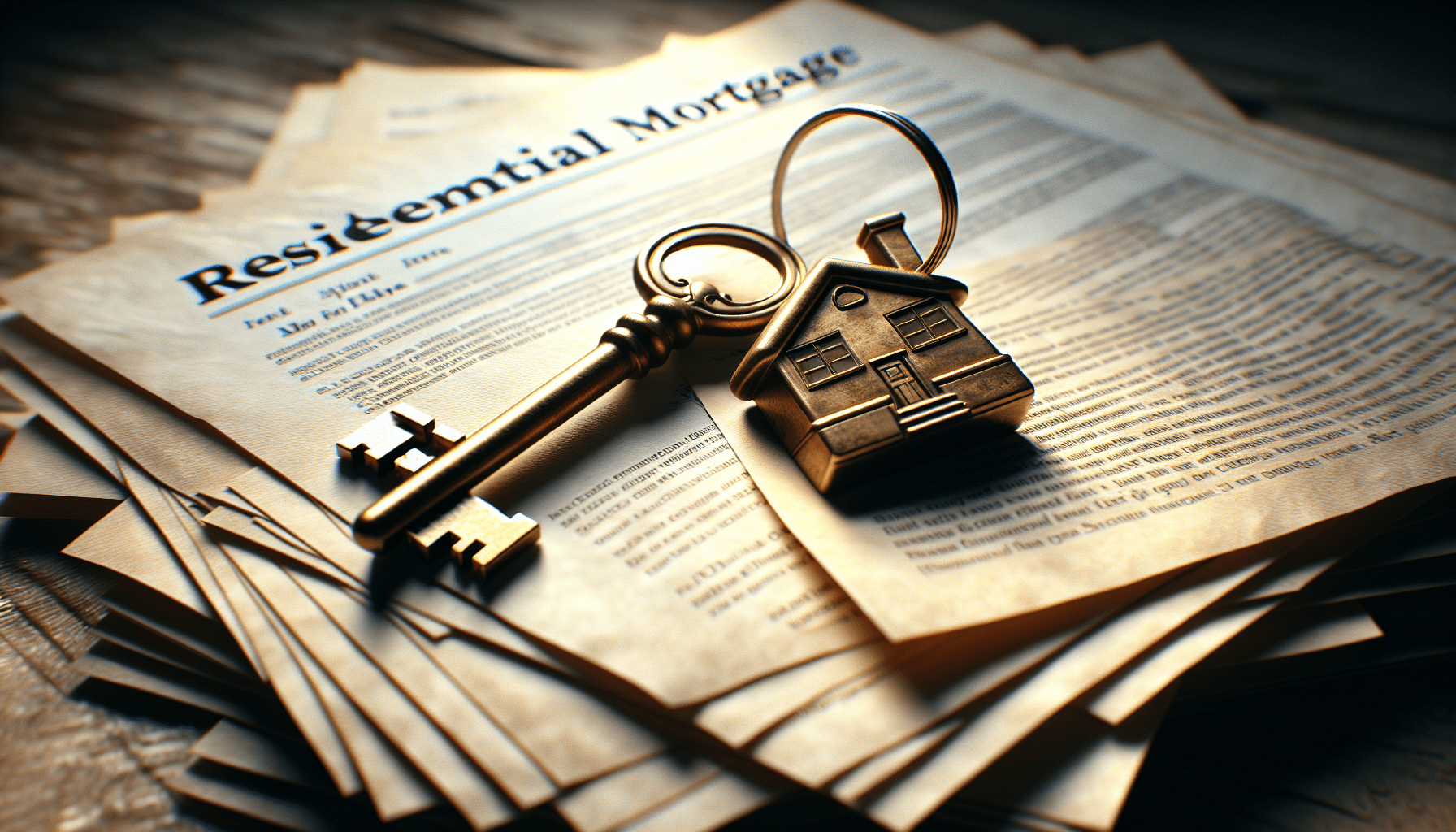Updated: 16/01/2026
Have you ever wondered how a fixed rate mortgage could affect your long-term financial planning? Understanding fixed rate mortgages can seem daunting at first, but once you break it down, it’s pretty straightforward and can help you make the best decision for your home financing needs. Let’s unravel the concept together!

What are Fixed Rate Mortgages?
A fixed rate mortgage is a type of home loan where the interest rate remains the same for the entire term of the loan. This consistency offers you stability in your monthly payments, which can be a massive relief when budgeting for your future. Fixed rate mortgages typically range from 15 to 30 years, and choosing a fixed rate means you’ll know exactly how much you need to pay each month for the life of the loan.
How Do Fixed Rate Mortgages Work?
When you take out a fixed rate mortgage, the lender gives you a lump sum of money to buy a home. In return, you agree to pay back the amount borrowed, along with interest, over a specified period. The monthly payments cover both principal and interest, allowing you to build equity in your home over time. As you make payments, the portion going towards the principal increases, while the interest portion decreases, which can be a little reassuring as you start building your investment.
What is the Bank of England Base Rate?
The Bank of England base rate is essentially the interest rate at which banks can borrow money from the central bank. This rate influences the interest rates banks offer to customers, including mortgage rates. However, because fixed rate mortgages have locked in their interest rates, fluctuations in the base rate won’t affect your payment schedule until your mortgage term ends or you refinance. Therefore, if you’re looking for stability in uncertain financial times, understanding this concept can be very beneficial for you.

Are Fixed Rate Mortgages Likely to Go Down?
Predicting whether fixed rate mortgages will go down can be tricky. Economic indicators, inflation rates, and the Bank of England’s base rate all play a role in determining mortgage rates. Keeping an eye on these trends can help you gauge if it might be a good time to secure a mortgage. Sometimes, lenders might offer promotional rates, but predicting an overall market decrease requires a lot of insight. For your peace of mind, consider consulting with a financial advisor to assess your specific situation.
What are the Benefits of a Fixed Rate Mortgage?
Choosing a fixed rate mortgage comes with several advantages:
- Predictability: Your monthly payments remain the same, making it easier to budget and plan for other expenses.
- Protection Against Rising Rates: If interest rates rise, you won’t be affected since your rate is locked in.
- Simplicity: Fixed rate mortgages are straightforward, making them easier to understand compared to variable-rate loans.
- Potential Tax Benefits: In some cases, the interest you pay may be tax-deductible, depending on the country and jurisdiction.
Here’s a quick breakdown of these benefits:
| Benefit | Description |
|---|---|
| Predictability | Consistent monthly payments for ease in budgeting. |
| Protection Against Rising Rates | Fixed rate shields you from market fluctuations. |
| Simplicity | Simple structure makes it easy to grasp. |
| Potential Tax Benefits | Possible deductions depending on local tax laws. |
What are the Disadvantages of a Fixed Rate Mortgage?
While fixed rate mortgages have plenty of perks, they are not without their downsides:
- Higher Initial Rates: Fixed rate mortgages often start with higher interest rates than variable-rate loans.
- Less Flexibility: If you want to sell or refinance your home, you may face a penalty for early repayment.
- Opportunity Cost: If interest rates fall after you secure your fixed rate mortgage, you stick with a higher rate unless you refinance.
Here’s a handy table summarizing these disadvantages:
| Disadvantage | Description |
|---|---|
| Higher Initial Rates | Initial rates may be higher compared to variable options. |
| Less Flexibility | Potential penalties for early repayment can be a drawback. |
| Opportunity Cost | Stuck with a higher rate if market rates drop. |
Stay Ahead of the Curve with Mortgage Monitoring
Monitoring your mortgage can be crucial in staying informed about your financial commitments. By keeping an eye on interest rates and the overall housing market, you may identify the perfect time to consider refinancing your fixed rate mortgage for a better deal. Tools like online calculators can also show you how refinancing would affect your payments, which can provide clarity in making decisions.

Are There Alternatives to Fixed Mortgage Rates?
Absolutely! If the fixed rate doesn’t seem like the right fit for you, there are alternatives worth considering:
- Variable Rate Mortgages: These mortgages have interest rates that can fluctuate based on economic conditions. They often start lower than fixed rates, which might seem attractive initially.
- Hybrid Mortgages: These mortgages mix fixed and variable rates, offering some stability and flexibility.
- Interest-Only Mortgages: This option allows you to pay only the interest for a certain period, making initial payments lower. However, keep in mind that you’ll still owe the principal.
You might consider these alternatives based on your financial situation and how comfortable you are with risk:
| Type of Mortgage | Description |
|---|---|
| Variable Rate | Fluctuating payments; lower initial rate. |
| Hybrid | Combination of fixed and variable features. |
| Interest-Only | Pays only interest for a set period. |
Is a Fixed Rate Mortgage the Same as a Fixed Term Mortgage?
It’s easy to confuse fixed rate mortgages with fixed term mortgages, but they refer to slightly different concepts. A fixed rate mortgage specifically refers to the interest rate remaining constant throughout the life of the loan. A fixed term mortgage refers to the duration or term of the loan, which can be either fixed or variable. So, in essence, a fixed rate mortgage is a type of fixed term mortgage—but not every fixed term mortgage is a fixed rate mortgage.
Frequently Asked Questions
Let’s address some common queries you might have about fixed rate mortgages.
1. How do I know if a fixed rate mortgage is right for me?
Consider your financial stability, plans for the future, and risk tolerance. If you value stability and have a long-term plan to stay in your home, a fixed rate might work best for you.
2. Can I refinance my fixed rate mortgage?
Yes, you can refinance your mortgage, but be sure to look out for any early repayment fees and ensure the new rate offers financial benefits compared to your current mortgage.
3. What happens if interest rates go down?
If you have a fixed rate mortgage, your rate won’t change. However, this may be an ideal time to consider refinancing to take advantage of lower rates.
4. What if I want to pay off my mortgage early?
Some lenders impose penalties for early repayment. It’s essential to check the terms of your mortgage before making a decision.
5. How do I find the best fixed rate mortgage?
Shopping around and comparing offers from multiple lenders can help you find the best terms and rates. Online mortgage comparison tools can also save you time and hassle.

Conclusion: Fixed Rate Mortgages
Navigating through the world of fixed rate mortgages involves understanding both the benefits and disadvantages they present. By considering your financial goals and being informed about market trends, you’re setting yourself on the right path to homeownership. Remember—it’s all about making a choice that aligns with your unique situation. That way, you can enjoy your home with fewer financial worries.
Now, how does that knowledge make you feel about your mortgage options? The right choice can significantly impact your life, providing you with both security and peace of mind.

